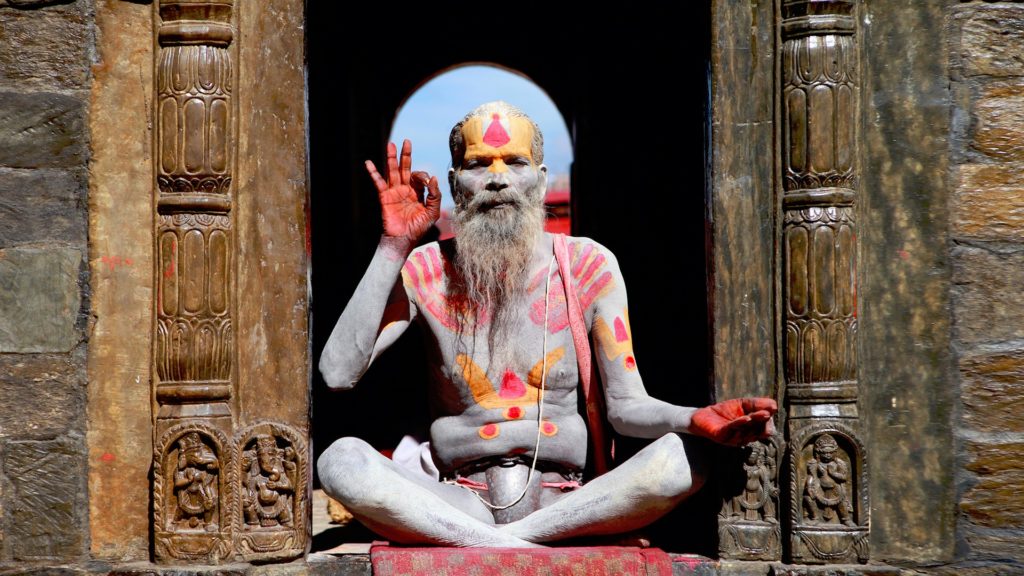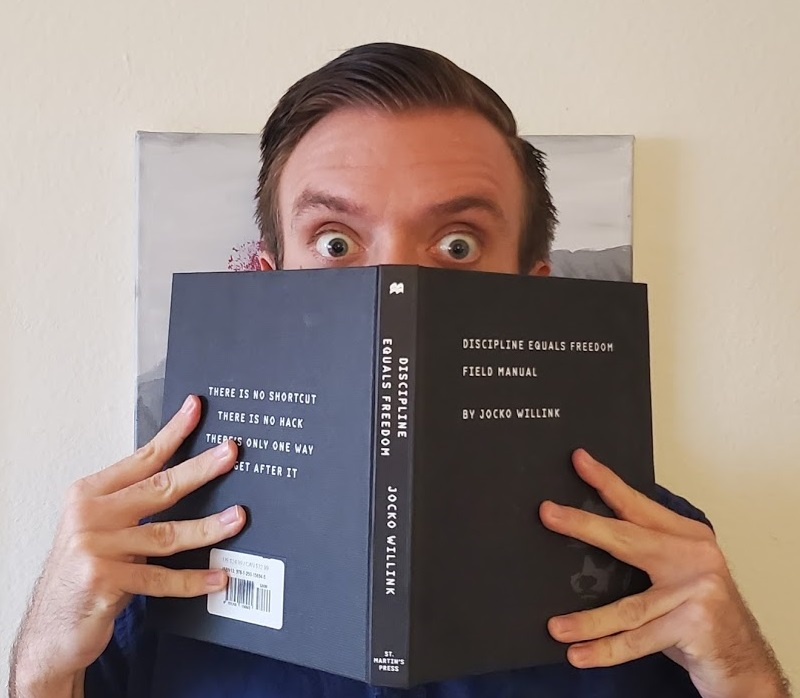Today is not a good day.
You slept through your alarm, spilled coffee on your favorite shirt, and your cat just relieved himself on your kitchen floor. Even worse, you have a huge presentation at work today and haven’t been preparing because you’ve been too “busy” binge-watching baking shows on Netflix. Yes, you chose watching people make cupcakes and brownies with shaped like turtles over your career. Needless to say, you feel like human garbage.
As your mind races through the countless thoughts that cease to end, something you remember back when you were 5 years old bubbles to the surface. You were angry, for what reason you couldn’t remember. But as tears began to well in your eyes and the guttural feeling in the pit of your stomach began to manifest into a strange concoction of screaming, whining and wheezing, an adult came down to eye level and said two simple words that made you feel a whole lot better.
“Just breathe.”
As if a time machine that was whizzing through space crashed back into the present moment, you stop for just a moment and do just that. Breathe.
In and out. In and out. In and out.
Although the thoughts are still there, they begin to get quieter. The feelings of frustration, anger, and shame are still present, but they don’t seem as powerful as they once were. Looking at the time, you were breathing for all of two minutes. But it seemed so much longer! With a new resolve, you grab a new shirt, mop up the cat pee, and head to work. Although you may not do the best job with your presentation, the only thing to do now is to get it done.

When everything is falling apart
We all have bad days. Just like we’ve all have some really good ones, too. Even more so, we have some bad days that turn into bad weeks, months, or even years. And this can really suck. After a time, you begin to lose hope that things will ever get better. Or even worse, you don’t have hope that things will get better, at all. That you will be living a life of perpetual disappointment, wondering how in the world you can turn it all around.
I wish I had the answer for you. But unfortunately, I don’t. And in fact, if someone were to tell you they do have the answer, you should run very fast in the opposite direction and not look back. Because the only person who can find that answer, is going to be – you guessed it! You.
But there is something that will likely help you start moving in the right direction.
In his book “Everything is F*cked: A Book About Hope” Mark Manson postulates three important actions that give people hope. One of those actions is self-control, which essentially means to engage in behaviors that are intuitive to difficult situations, instead of counter-intuitive. For example, if I were to get in a fender bender while driving, an intuitive response would be to ask if the other person is okay, get their insurance, and then be on with the rest of my day. However, a counter-intuitive response would be to scream at the person for being an idiot and have a temper-tantrum on the side of the 57 freeway. One response involves self-control and solves the problem of a difficult situation. The other does absolutely nothing productive and actually makes the situation worse.
But, self-control is easier said than done. Especially when everything around you is falling apart. Having self-control is the last thing you’re worried about when you just got fired from your job, have rent due in 4 days, and just dropped your phone in the toilet. Quick! We need a bag of rice!
At least you have meditation

I want you to take a moment from this post and walk to your kitchen. Go ahead, I’ll wait.
What do you see? Probably lots of things. Forks, knives, pots, pans, spices, hand towels, a blender, oven, microwave, and maybe even one of those ridiculous products you purchased from a late-night television program. There’s nothing like a George Forman grill or Slap Chop that completes a kitchen!
What do they all have in common? They’re all tools. They have a purpose and allow you do do something you otherwise would not be able to do by yourself. You can cut large objects into smaller pieces with a knife. You can cook liquids to boiling temperatures with a pot. You even cut a bunch of nuts with a Slap Chop! I promise that I’m not sponsored by Slap Chop, I just think it’s hilarious.
Without all of these tools, you would be at a severe disadvantage if you wanted to cook anything remotely edible. Shoot, even the worst cook in the world needs at least a microwave at a bare minimum to make a cup of instant ramen. Just like with cooking, when everything is falling apart, we need tools to help us out our slump. And just like your kitchen, there are many different tools at you can utilize, with not one being any better than the other. Just different. You have a chef knife for larger foods, a slicer for tiny foods, and a Santoku knife that you never really use, but you keep it because it sounds super cool. One of those tools that you can use, is meditation. And the best part? It’s always there when you need it and doesn’t take a lot of time.
Why meditation?
In all honestly, I should have titled this section “why not meditation?” That’s because, in terms of cultivating self-control, it’s going to give you some of the biggest payouts for the smallest investment. The catch? It can be really, REALLY, hard. However, once we go through what can be gained from the process, I’m hoping that you can see that it’s worth your time and energy, especially when the world is crumbling around you and it’s the last thing you feel like doing.
Meditation brings you to the present
When everything is falling apart, we’re almost exclusively stuck in the either the past or the future.
“What I said yesterday at that meeting was so stupid” (past). “I have no idea if I’m going to have a job tomorrow…” (future).
It’s a cyclical pattern that focuses on everything but where you are right now, the present moment. Meditation is going to help us break that cycle and bring us back to where we need to be so that we can begin to solve the problems going on in our life. Because the only way to solve problems is being active in the present, not by thinking about before or after.
This may seem counter-intuitive since thinking about the past can give insight into a current problem (history) and thinking about one’s future can allow us to make informed decisions (prediction). And yeah, it sure feels that way. I have the same thought process. But after hours, days, or even weeks about thinking about a problem, that problem is still there for me to solve. The only way to begin the problem-solving process is to take yourself out of the past or future and taking action in the present.
Meditation quiets your mind

If you’re anything like me, your mind can do some amazing things. But at the same time, it can be really loud and really annoying. I’ve lost count the number of times, out loud, I’ve told my mind to “SHUT UP!” Alas, that doesn’t work too well and your mind will keep chattering away. Finding a new problem to tackle while there are 100 more on the to-do list.
And there are some other tools that you can use to quiet your mind or shut it down completely. Drugs, alcohol, and mindless activities, such as television, social media, or meaningless internet surfing typically come to mind. However, these are all temporary tools. It’s like having a hole in your wall and putting up a picture frame in front of it. Yeah, you can’t see that hole in the wall anymore, but it’s still there. And who knows what might be crawling inside after a few months of ignoring it. Even worse, these substances and mindless activities take away your precious time. The time that could be used to solve a laundry list of problems that have arisen as the floor is crumbling beneath you.
Instead, meditation can quiet your mind in a fraction of the time once you learn how to really focus in on it. Setting aside as little as 10 minutes can quiet your mind enough so that you can actually think of which action to tackle next. If that’s not more efficient than binge-watching Friends for the third time, then I don’t know what is!
Meditation itself is a practice of self-control
How crazy is that? Not only does it bring you to the present and helps quiet your mind, but you’re also practicing self-control just by meditating. That’s because the process of meditation is to constantly bring your attention to one thing, over and over again. I will go over meditation techniques in a bit, but when meditating you find something to focus your attention on, whether it’s your breath, sensations in the body, or even the sound of your fan whirring in the background. When your mind starts to wander (which it will), you bring your attention back to what you were focusing on. Do that for an extended period of time, such as 10 minutes, 20 minutes, or 2 hours if you’re feeling bold.
Doesn’t sound too bad, right? Meditation is not complex. It’s just difficult to do.
When you’re starting, those 10 minutes are going to feel long. That 20 minutes is going to feel even longer. Similar to a younger sibling who wants to play with your toys, your thoughts will be pulling at your attention to break you away from the practice.
Don’t you have an email to send? What’s on the news? Isn’t there a new movie out that everyone is talking about?
Although it’s only 10 minutes, you are going to feel like you’re wasting your time. But that feeling is you pushing towards greater self-control. Learning to allow some thoughts to pass and taking action towards what’s truly important.
Getting Better at Meditation
I know what you’re going to say.
“But, I’ve tried meditation and I’m not very good at it!”
Well, lucky for you, because you don’t get better at meditation. But, it does get a little easier.
Meditation is a process, not a skill. Remember, meditation is simply narrowing our attention to a single event in our environment. From a 5-year-old with boogers dripping down his nose to a Tibetan monk who has been meditating daily for 30 years, the process never changes.
Instead of asking “what am I doing wrong?” or “how can I get better at meditating?” ask yourself “why am I having trouble focusing today?” There’s likely something that’s fighting for your attention to such a degree that stepping away from it, for even 10 minutes, is making your thoughts spiral into a fit of despair. But why is that? Will not thinking about a problem for 10 minutes make the problem worse? I would bet money that isn’t the case.
That’s also why meditation is going to be even more important when you’re having trouble focusing. To work on your self-control and push through those thoughts. But, don’t be hard on yourself! If after the end of your meditation you spent most of the time lost in a sea of your thoughts, it’s okay. The fact of allocating time to sit down and practice meditation is still a huge leap towards greater self-control. Just be consistent, that’s it. Every day (or even twice a day, such as when you wake up and before you go to bed), spend just a bit of time meditating. I would recommend nothing shorter than 10 minutes, but do what feels good to you. Once you become more comfortable with the process, try increasing the time your meditating and note how it makes you feel differently the longer you meditate. If you consistently meditate every day for an entire week, I’m certain you’ll have a greater sense of self-control then when you started.

A simple meditation guide
There are countless types of meditations and an even greater mountain of free resources, such as guided meditations on the internet. So, I won’t spend too much time explaining the process.
However, here is the quick and dirty to start meditating today.
1. Start a timer
Pretty straightforward. Get a timer and set it for a specific time. Again, I recommend at least 10 minutes and feel 20 minutes is a great goal to strive towards. But set your timer for whatever amount of time you feel comfortable with.
2. Find a comfortable position to meditate
You don’t need to sit on the floor, lotus style, to meditate. Just find a comfortable chair to sit in. Or, you could even do it standing (or walking). It doesn’t really matter. However, any other activity that you’re doing is going to take attention away from your practice, so a comfortable chair is recommended.
3. Find something to focus your attention
Most commonly, you can focus on your breath. The sensation of the air moving into your nostrils, the feeling of your chest rising and dropping, and the sound of your breath entering and escaping your lungs. But, this can be anything else that uses the 5 sensations. You can focus on the smell of your freshly cooked dinner on the kitchen table, the sounds of laughing children playing outside, or even the sensations of discomfort you’re feeling in your lower back.
If you’re really having trouble bringing your attention to one thing, you can repeat a word or a phrase out loud. It doesn’t even have to make sense or be ‘enlightening.’ You can repeat the word spoodle (a spider poodle?) and still get the job done.
By picking a single sensation, we have our tool ready to combat the hardest part of meditation.
4. When you have a thought, let it pass
By far, the hardest part of meditation is allowing yourself to have a thought, but not engage with it. Letting it pass into the nether with the billions of other thoughts you’ve had in your lifetime. As much as you’re going to want to interact with that thought, even for just a moment, by bringing our attention away from the thought we will begin to cultivate self-control.
However, when you do engage in a thought, it’s not the end of the world! Just bring your attention back to the breath/sounds/mantra and regain your focus. Being able to push the thought away is strengthening your self-control, allowing yourself to get back to the present moment.
5. Repeat, repeat, repeat
After you have the basics down, all that’s left to do is keep on doing it! Focus on the sensation and let any thoughts pass, all the way until the timer is done.
Interestingly, you’ll likely notice a few things once you finish meditating:
- You will be more aware of the environment around you.
- Your thoughts will be quieter than they once were.
- Time seemed to pass incredibly slowly.
- You had way more competing thoughts than expected.
- A calmness that extends for a short amount of time after meditating.
Some of these are greatly beneficial (calmness, being aware and quieting of thoughts), while others are more introspective (the feeling of time passing slowly and awareness of thoughts). Use these to your advantage during the rest of your day. When things begin to get hectic or your mind begins to race with possibilities, think of the feelings you cultivate through meditation. Or, even better, take a few moments to feel them yourself.
Final Thoughts
I want to remind everyone that meditation is not a cure-all. It is merely a practice of attention that can be helpful for humans by providing a way to focus intently on one thing. If you find that you’re using meditation to treat a clinical symptom or in place of a medical professional, I would recommend you actually calling up a medical professional instead. Just as a knife is great for cutting and a hammer is great for…well…hammering, don’t try to use knives to hammer in nails and hammers to cut your food. Your future self will thank you.
However, I do believe that essentially everyone can benefit from consistent practice with meditation. By pushing yourself every single day, you will be more present in your everyday experiences and more in-tune to the now instead of your past and future. Because, in the end, we’re not living in the past and we can’t predict the future. All that’s really there is the now. And regardless of what your beliefs are, one thing is certain. You think, therefore you exist. And if you exist, you are living. And if you are living, then live.
As you reach the end of this post, I want to leave you with a quote:
“We have only now, only this single eternal moment opening and unfolding before us, day and night.”
– Jack Kornfield
Thank you so much for reading. Let me know your thoughts on meditation in the comments below!






